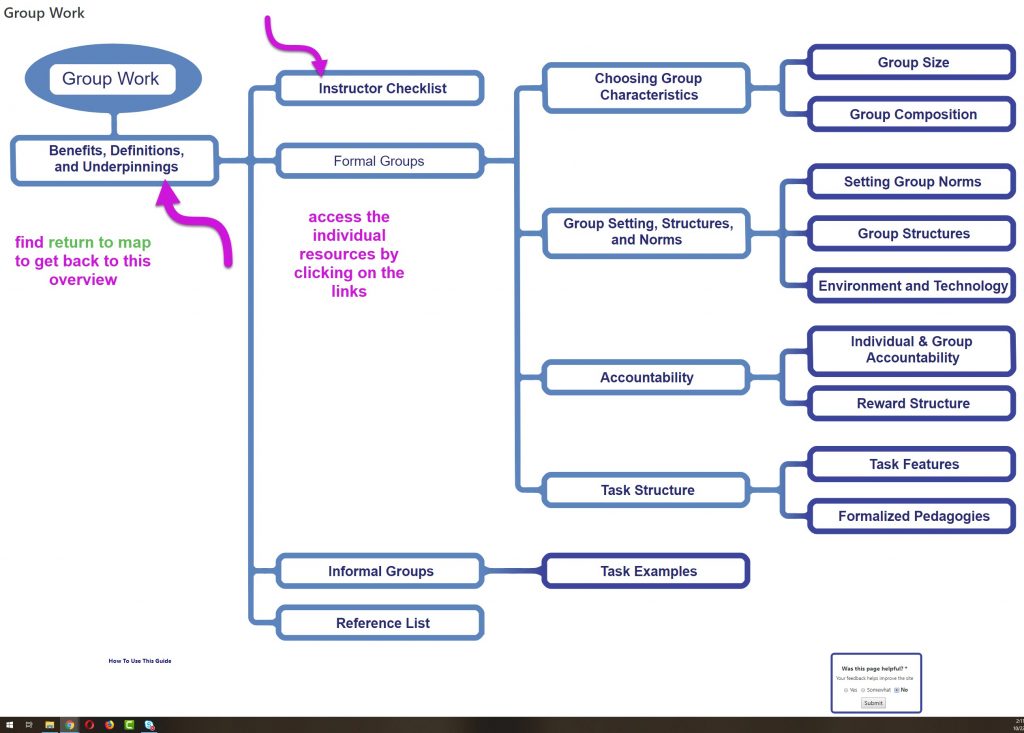6.2 Resources Evaluation ~30-60mins.
Browse evidence-based group work guide to establish applicability
INSTRUCTIONS:
STEP 1: Access the map and browse the collection of guides on group work by clicking on this link. If you need help with the navigation take a look at the screenshot below or access this website.
STEP 2: Reflect on the resources you just browsed.
Can any of them inform your facilitation of group work online? Which resources are particularly helpful? Why?
STEP 3: Briefly summarize your thoughts about the guides 1 paragraph of 3-5 sentences and share them with us in the Moodle Single Post and Reply Forum Your Resources Evaluation. You can also take a few screenshots of the guides that could be useful for your online course and add them to your brief response. Post the url of the guides that your thoughts relate to.
TEACHING INTENTIONS:
In courses designed through a constructivist lens, the learners are actively involved in the process of meaning, especially with regards to knowledge aspects that are relevant to their personal and professional interests. As is the case with many other activities in this course, this task follows many of the principles of a constructivist classroom.
Find reference
The constructivist classroom
- Beginning with the whole – expanding to parts
- Pursuit of student questions / interests
- Primary Sources / manipulative materials
- Learning is interaction – building on what students already know
- Instructor interacts / negotiates with students
- Assessment via student works, observations, points of view, tests. Process is as important as product
- Knowledge is dynamic / change with experiences
- Students work in groups Source : Thirteen Ed Online (2004)
Reference:
Wilson, K. J. et al. (2018). CBE—Life Sciences Education. The American Society for Cell Biology. CC-BY-SA 3.0. Access the article here.
and website resources accessible by clicking on this link.


